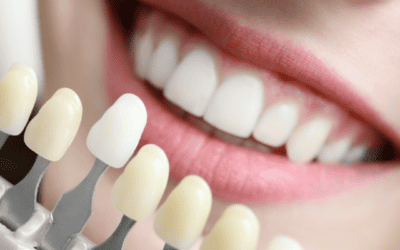What is bruxism?
Bruxism is a term for tooth grinding, which is the involuntary clenching or grinding of teeth. It most commonly happens when you are asleep (sleep bruxism) but can also happen when awake.
Signs and Symptoms of bruxism
- Teeth ache in the mornings
- Teeth can feel sensitive all over
- Sore jaw joints
- Headaches
- Sore neck
- Sleeping partner complains they can hear the teeth grinding during the night
- Stiff jaw on wakening
- Teeth can feel loose
In addition, the pain from a sore jaw joint can radiate to the ears and you can feel like you have ear-ache. If you have ear-ache but your doctor says they look healthy, it is always worth seeing your dentist to rule out a dental or jaw joint problem.
Why do we grind our teeth?
- Stress and anxiety
- Some medications or drug misuse
- Children can grind their teeth as teeth erupt
- Sleep apnoea or other sleep disorders
- Habit

Pain from grinding can be severe.
What can happen in the long-term if I grind my teeth?
- Sensitive teeth
- Chipped teeth that can affect the appearance of your smile
- Teeth that wear down over time – they will start to appear shorter
- Cracked teeth – this can be very painful and if severe can lead to tooth loss
- Fillings which chip and break
- Strain on the jaw joints and supporting muscles
- Teeth can become loose
What’s the difference between sleep bruxism and day-time bruxing?
Sleep bruxism is actually classified as a sleep related movement disorder. Those who brux while sleeping are more likely to have other sleep disorders, like snoring and/or obstructive sleep apnoea. Obstructive sleep apnoea is when there are pauses in breathing during sleeping and is a serious condition. If you are grinding your teeth during the night it is important to get this checked with your dentist.
What do I do if I’m grinding my teeth?
First thing is to make an appointment with your dentist to get this checked out. They will do a thorough exam of your jaw joints and muscles, your teeth and your gums. Those who clench their teeth can have tell-tale signs on their cheeks and gums. The dentist will also need to exam the extent of the damage done to the teeth. If they suspect a sleeping disorder, they will ask more questions about this, do a questionnaire and refer you to a sleep physician if indicated.
The teeth may have lots of crack-lines from the all the pressures put on them from clenching and grinding. This could lead to cracked teeth in the future. The problem with cracked teeth is that they can be like a crack on your windshield – at some point it will get worse and go in any direction. The problem is we don’t know when and in what direction the crack will go. For your teeth this means that the crack could spread down into the nerve of the tooth. This could ultimately mean root canal or loss of the tooth if the crack is too extensive.
If you need to make an appointment to get your tooth grinding checked out, please contact us.
What is the treatment?
First, other medical causes will be ruled out or treated – for example obstructive sleep apnoea or issues with medications.

A hard splint (mouthguard) can help protect
the teeth from the effects of tooth grinding.
Unfortunately we can’t stop you from grinding your teeth. However, we can protect the teeth with the use of a splint – this is a hard plastic mouth-guard that goes over the teeth. It prevents the teeth from meeting in the usual way which can take pressure off the jaw joint and relax the muscles. It also protects the teeth and other dental work (like fillings and veneers) from damage. These are custom-fitted to your mouth and at Dentistry On George we provide hard acrylic splints as studies have shown these are more effective and they last a lot longer. See what Mishari has to say about them in the video below:
VIDEO
Another effective treatment to help loosen up the tight jaw muscles and try and break the habit of clenching and grinding is to see a physiotherapist who specialises in this area. Using both of these treatment options together, we have seen great improvement in our patients’ symptoms and quality of life.
Mishari had been treating a patient with mild discomfort from a tooth that had already had root canal twice. Niggles from the tooth were spreading to the side of the face. Mishari diagnosed tooth grinding/clenching as the source of the pain. The patients saw a head and neck physio and Mishari also made a splint. From wearing the splint and three sessions with the physio, the pain completely disappeared.
What can I do at home to help?

Trying relaxation techniques can help if your
tooth grinding is from stress.
There are some very useful self-care tips you can try.
- Anti-inflammatories if you are able to take them, like ibuprofen
- Sticking to softer foods
- Avoid things like burgers and apples that need you to open your jaw wide
- Avoid chewing gum
- Try to eat evenly on both sides
- Hold a heat-pack to the jaw joints and muscles around it
- Try relaxation techniques to help with any stress (meditation, a warm bath, a nice walk or doing your favourite hobby like reading, cooking or painting)
- Jaw exercises – watch the video below to see how to do these
VIDEO
Final Thoughts
Pain can be from many things and you need to make sure you are seeing a dentist who always looks at the bigger picture. At Dentistry On George we always take a holistic view to patient care. Tooth grinding can be caused by other things like sleep apnoea, but also other symptoms that you might have been putting up with for years, like ear-ache, sore neck and headaches, could be coming from your jaw.
Contact our friendly team to book you assessment today.



